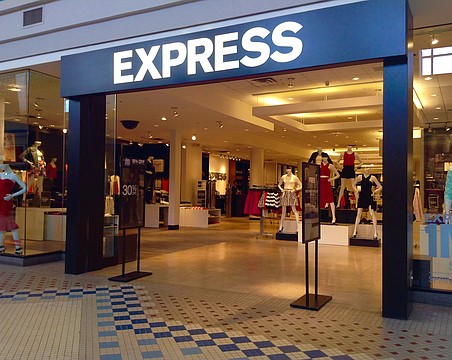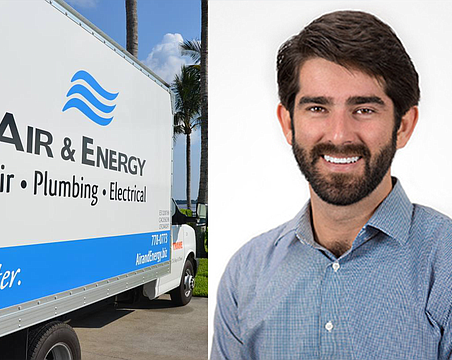Chasing the Best
COMPANY by Mark Gordon | Managing Editor
Secrets are for sharing, not storing. So says the founder of a Gulf Coast-based business who lets all his employees see the firm's financials.
Good thing Joseph McElmeel isn't a spy - he's much better at dispensing secrets than keeping them.
His open-mouth policy, while somewhat unconventional in a world where business secrets are normally tightly guarded, has nonetheless been an integral factor in the significant growth at the executive search firm he founded in 1980. The company, Sarasota-based Brooke Chase Associates Inc., has had an average annual growth rate of 35% the last three years, passing $2 million in revenues in 2006. McElmeel is projecting 40% growth in 2007.
What's more, the company has had 20-plus years of revenue increases, although not always at the rate seen in the past few years. Says McElmeel: "We've never had a down year."
A secret-sharing strategy isn't the only impetus for the firm's growth. McElmeel, the chairman and CEO, says its niche in finding executives to work for companies in the building materials industries, including kitchen and bath products, has been a boost, as has a refined series of psychological tests it uses before placing a candidate with a company.
Plus, before attempting to place a candidate with a firm, Brook Chase recruiters gauge the corporate culture of the client seeking the executive, to make sure they are looking for a person that fits into the company.
Still, McElmeel says that letting others see how the firm does things, both externally and internally, has had a positive impact, right down to the weekly Monday morning staff meeting where every employee in the company's six offices has a chance to hear about the firm's entire financial picture. That includes a breakdown of which clients haven't paid their bills, updates on new clients and where the company is in reaching monthly and yearly financial targets.
Brooke Chase has about 15 employees working out of its Sarasota headquarters, and another five in offices and satellite branches in Charlotte, N.C., Chicago, Los Angeles, New York and San Francisco.
"I think it's important, especially in a small company, that people know the company is doing well," says McElmeel, who says he's regularly allowed employees to see the inner workings of the company if they asked, but didn't start the meetings until last year.
The open-secret policy has also had the effect of opening up employees, as McElmeel says staffers aren't shy about suggesting improvements and ideas.
The policy carries on when McElmeel is outside the office, too, when he meets with peers and competitors. In those instances, instead of talking about internal company financials, he will talk strategy. McElmeel, who once served as president of the National Association of Executive Recruiters, recently founded the Executive Recruiters Roundtable, where a group of peers meets annually to talk about the industry.
Repeat customers
The industry is top-heavy, with a small number of firms doing a bulk of the work worldwide. Those companies include Heidrick & Struggles, Korn/Ferry and Christian & Timbers, a New York-based firm, whose CEO, Brian Sullivan, runs the company partially from his Casey Key home. Christian & Timbers had 2006 revenues of $75 million.
McElmeel, a New York native, opened his firm in 1980 in Chicago, with an office on Michigan Avenue. He had run a manufacturing company in the Chicago area that made products such as marble counters and medicine cabinets, and used he executive search firms to find managers.
He decided to try it on his own, and after the first five months of slow-going, he says he learned that the only way he would succeed is by attempting to build long-term relationships where he would get repeat customers, as opposed to just finding clients here and there.
Since then, McElmeel says, he has had dozens of repeat clients, including Jacuzzi Whirlpool Bath; when the company hired Brook Chase in 1981 it had about $18 million in revenues, a paltry number compared to the annual $300 million or so it has now. The growth, not surprisingly, has led the company to use Brooke Chase to fill dozens of executive positions.
McElmeel says examples like that are the norm for the firm, as at least 90% of its current clients are repeats. "We are not in the business of losing clients," he says.
The firm grew steadily the first 20 years, and McElmeel moved the company headquarters to Sarasota in 2000 - count him and his wife among the hordes who enjoyed vacationing in the area so much they decided to move here.
'Cream of the Crop'
In addition to learning the art of cultivating repeat customers, McElmeel has also learned the paradox of the executive recruitment industry: The best candidates for executive positions tend to be the ones already happily working and not looking for new employment.
It's a challenge faced by other firms in the industry, both big and small. One way Brooke Chase has attacked it has been by building a database of qualified people for hundreds of jobs. The firm's list currently has more than 50,000 names.
When searching for an executive to match with a client, the company pares down the list. It will normally look for about 50 qualified people and then interview 10 to 15 from that group before sending four or five names to the company. "The client only sees the cream of the crop," McElmeel says. "They don't want to go through the fodder."
The weeding out process takes two forms, both starting with psychological tests: One is focused on the potential candidate's strengths and weaknesses, and the other is focused on what the company is looking for in an executive.
On the latter, testing a client's current employees gives Brooke Chase recruiters a baseline for what the company is seeking in a new executive. It also allows the firm to get a grip on the company's corporate culture, which helps eliminate candidates who would be a bad fit.
Meanwhile, the actual candidates go through three tests: The Cree Questionnaire, which measures creativity; the sales attitude checklist, which measures sales habits; and the Thurstone Test of Mental Alertness, which measures traits such as a candidate's ability to learn new skills, how quickly he gets complex ideas and how he flexible he is with change.
McElmeel has been using these tests and others like it for about 15 years. He says they are the backbone of getting executive recruitment right. He's even used the tests in hiring for his own company, sometimes going against the results because his gut disagrees with the findings.
Those times - every one - have been colossal mistakes. "Every time I go against the tests," McElmeel says, "I get burned."
REVIEW SUMMARY
Company. Brooke Chase Associates
Industry. Executive search firm
Key. Company has succeeded by testing both the skills of potential candidates for if they would fit within the corporate culture established at the firm seeking the executive.
CEO READING
Good to Great,
by Jim Collins
One of Brook Chase Chairman and CEO Joe McElmeel's favorite business books is the Collins classic that profiles how several companies improved the overall business by hiring and promoting the right people, as opposed to just getting warm bodies to fill a vacancy.
Says McElmeel: "Most successful companies work on getting the right people on the bus before they decide where to drive it."
Tips for a great interview
Joe McElmeel has been interviewing candidates for executive and management positions for 25 years. He's also interviewed people to work in his office, from senior recruiters to receptionists. Here are some of his tips for how to conduct a great interview:
• Be a salesman: While money is one of several motivating factors, it usually isn't the only one a potential employee is thinking about. What's more, the best candidate tends to already be happily employed. So the best move is to go on the offensive, and sell what makes your business great.
• No warm bodies: When interviewing candidates, seek the best person, McElmeel says, then figure out exactly what that person will do. "Hiring is not just about filling the position for the purpose of filling it," he says. "It is about finding the right person to fill the seat."
• The full person: McElmeel says a CEO or hiring executive should be "hiring a person for who they are," not just someone with the right skill set. To that end, ask open-ended questions that enable candidates to talk about their failures, not just their triumphs. Examples of those types of questions include "If you could go back in time and change any one thing, whether it be personal or business, what would it be?" and "What was your greatest faux paux? What did you learn? What would you do different today?"
-Mark Gordon





